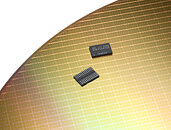Monday, July 20th 2020

Samsung's 5 nm EUV Node Struggles with Yields
Semiconductor manufacturing is a difficult process. Often when a new node is being developed, there are new materials introduced that may cause some yield issues. Or perhaps with 7 nm and below nodes, they are quite difficult to manufacture due to their size, as the transistor can get damaged by the smallest impurity in silicon. So manufacturers have to be extra careful and must spend more time on the development of new nodes. According to industry sources over at DigiTimes, we have information that Samsung is struggling with its 5 nm EUV node.
This unfortunate news comes after the industry sources of DigiTimes reported that Qualcomm's next-generation 5G chipsets could be affected if Samsung doesn't improve its yields. While there are no specific pieces of information on what is the main cause of bad yields, there could be a plethora of reasons. From anything related to manufacturing equipment to silicon impurities. We don't know yet. We hope that Samsung can sort out these issues in time, so Qualcomm wouldn't need to reserve its orders at rival foundries and port the design to a new process.
Source:
DigiTimes
This unfortunate news comes after the industry sources of DigiTimes reported that Qualcomm's next-generation 5G chipsets could be affected if Samsung doesn't improve its yields. While there are no specific pieces of information on what is the main cause of bad yields, there could be a plethora of reasons. From anything related to manufacturing equipment to silicon impurities. We don't know yet. We hope that Samsung can sort out these issues in time, so Qualcomm wouldn't need to reserve its orders at rival foundries and port the design to a new process.

5 Comments on Samsung's 5 nm EUV Node Struggles with Yields
I'm still not thrilled with Intel, because I feel like their lollygagging the last several years with 4 cores and intentionally stunted IPC improvements, hurt the worldwide technology industry in general, or at least kept things from developing at the pace that they potentially could have. If AMD had gone out of business entirely a few years ago, or if they hadn't developed Ryzen and that technology, where would things be right now?
One thing that annoys me is the obvious superiority of many AMD products right now, and the delay in seeing widespread QUALITY laptop products with "AMD Inside".
I am well informed on Intel and AMD and there have been, easily, 30 Intel models of laptops and 2 in 1's to choose from, but maybe 4 comparable AMD laptops, of the same caliber. I know AMD has been primarily focused on desktop processors and systems, but it's still frustrating from my point of view.
I keep wondering what would happen in technology if we woke up one day soon and AMD had all of Intel's resources and finances at it's disposal. I doubt that AMD would sit there for years and years and let their technology languish and stagnate.
With Apple fully embracing ARM, that at least means that there will be meaningful competition and sufficient motivation for everyone, including Intel, to keep striving for IPC and power efficiency gains. I don't have any Apple products, yet, but I'm curious to see how far they could potentially take their processor designs and what they could do with device form factors, in the future. I know it's crazy but I wish they would make a tablet with some kind of expandable storage option, even if it's some proprietary and overpriced "iCard". That would at least be SOMETHING, some kind of option for people that purchase their devices and need actual flexibility.